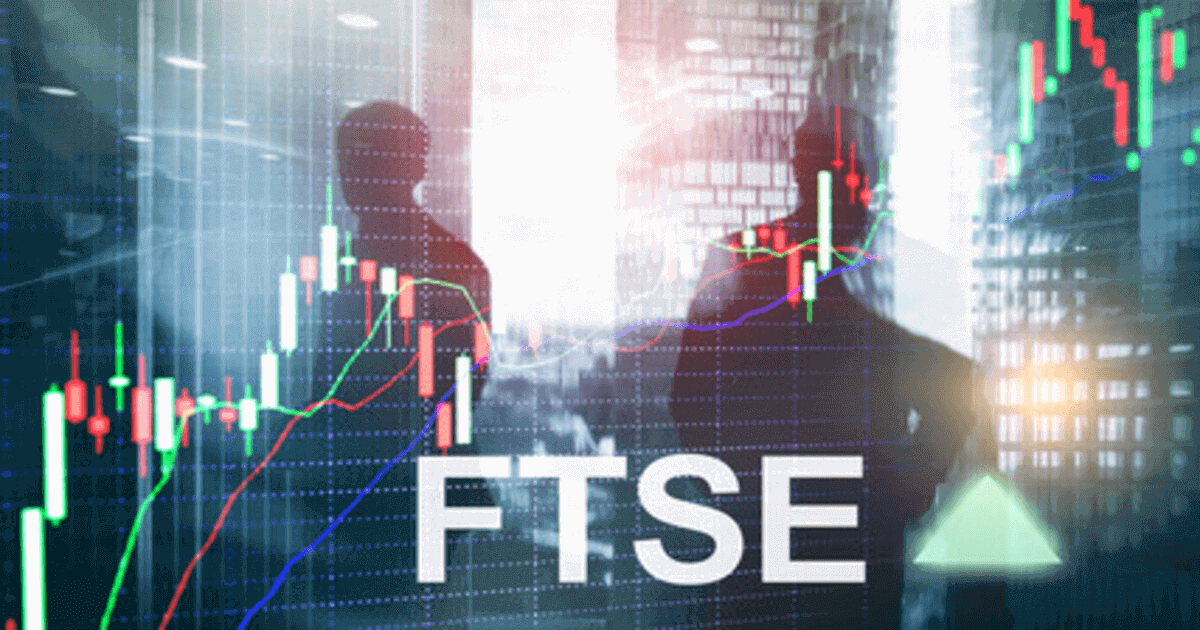The financial world is undergoing a seismic shift, spearheaded by the FTSE 100. As 2024 unfolds, the confluence of the FTSE 100 and fintech breakthroughs unveils a treasure trove of possibilities and groundbreaking progress. This article offers an unparalleled glimpse into the prevailing trends that will define the future of finance within the FTSE 100. Deep dive into the cutting-edge trends and revelations with FTSE 100 FINTECHZOOM.
What is Fintech Integration in the FTSE 100?
The rise of financial technology (fintech) within the FTSE 100 is shaking up old habits and laying the groundwork for groundbreaking advancements. Delve into how these FTSE 100 fintech players are transforming finance, from digital banking to blockchain tech.

Digital Banking Disruption
The landscape of financial services is undergoing a metamorphosis, shattering traditional limitations to create a frictionless and individualized experience for customers. This renaissance, driven by the emergence of agile digital-only banks and innovative platforms within the FTSE 100, is revolutionizing how we manage money, making it more inclusive and customer-centric than ever before.
Digital-only banks, unburdened by the confines of physical branches, spearhead this transformation. They leverage cutting-edge technology to provide users with intuitive mobile apps and online platforms that streamline banking processes. Prioritizing user experience, these institutions introduce features like AI-powered chatbots for 24/7 support and personalized financial advice tailored to each customer’s needs.
Even established financial giants within the FTSE 100 are embracing digitization to keep pace with evolving consumer demands. By pouring resources into technology and innovation, these companies are weaving digital solutions into their offerings. From adopting mobile banking applications and implementing AI algorithms for risk assessment to utilizing big data for personalized recommendations, they aim to elevate customer experience and remain competitive in a dynamic environment.
Perhaps the most transformative impact of digital banking lies in the revolution of customer interaction. Convenient mobile apps, accessible anytime and anywhere, empower users to manage their finances with unparalleled ease. AI-powered chatbots provide immediate support, addressing questions and guiding users through transactions. Furthermore, personalized financial insights equip customers with the knowledge to make informed decisions, fostering greater financial literacy and control.
Recognizing the burgeoning demand for digital banking services, FTSE 100 companies are accelerating their investments in technology and innovation. By harnessing the potential of data analytics, machine learning, and artificial intelligence, they strive to anticipate customer needs and deliver customized solutions. This proactive approach not only strengthens customer satisfaction but also cultivates long-term loyalty and trust.
Blockchain Innovations
The financial sector is undergoing a seismic shift driven by the transformative power of blockchain technology. This disruptive force dismantles traditional processes with its decentralized and transparent architecture. The impact is far-reaching, revolutionizing everything from payment systems to supply chain financing.
The embrace of blockchain solutions by FTSE 100 companies is gaining undeniable momentum. This adoption is fueled by a desire to fortify efficiency, security, and trust within their operations. A prime example is the utilization of smart contracts, self-executing agreements that eliminate the need for intermediaries.
Blockchain technology establishes an unparalleled level of security and efficiency. Transactions are recorded immutably and transparently on its distributed ledger system, minimizing the potential for fraud or manipulation. This heightened security fosters trust among stakeholders, leading to a more resilient financial ecosystem.
A significant advantage of blockchain-based financial solutions lies in their democratic nature and cost-effectiveness. By removing intermediaries and streamlining processes, transactions become both faster and more affordable. This newfound accessibility empowers individuals and businesses alike to participate in the global financial arena.
As blockchain technology matures, its widespread adoption within the FTSE 100 is poised for exponential growth. This pervasive integration will act as a catalyst for further advancements, fundamentally reshaping the financial landscape. Beyond finance, the inherent flexibility and versatility of blockchain unlock boundless possibilities for innovation and disruption across a multitude of industries.
Rise of AI and ML in Finance
FTSE 100 companies are wielding the potent duo of Artificial Intelligence (AI) and Machine Learning (ML) algorithms to craft ingenious investment strategies. These technologies empower analysts to delve into colossal datasets in real time, uncovering veiled patterns and market trends that might otherwise go unnoticed. This data-centric approach fosters well-informed investment decisions, ultimately optimizing portfolio health and maximizing investor returns.
Traditional risk assessment models often falter in the face of the intricate complexities of contemporary financial markets. AI and ML, however, come to the rescue by offering superior risk analysis capabilities. Through meticulous monitoring and evaluation of market forces, these technologies can precisely gauge risk levels and pinpoint potential threats in real time. This proactive strategy empowers FTSE 100 companies to effectively mitigate risks, shielding their investments and ensuring financial stability.
Fraudulent activities are a menacing threat that casts a shadow over the integrity of financial systems globally. AI and ML play a pivotal role in bolstering fraud detection for FTSE 100 companies. By meticulously dissecting transactional data and user behaviors, these technologies can unearth suspicious patterns and inconsistencies that signal fraudulent activity. This proactive detection mechanism safeguards companies from financial losses, protecting both their assets and their customers’ interests.
As AI and ML technologies relentlessly evolve, their transformative influence on the financial sector is poised for an exponential surge. The ability to analyze mountains of data in real time grants FTSE 100 companies unparalleled insights into market dynamics, customer behaviors, and burgeoning trends. This data-driven knowledge empowers companies to nimbly adapt to ever-shifting market conditions, spearhead innovation, and solidify their competitive edge in the global financial arena.
Cybersecurity in the Financial Sector
In our increasingly digitized world, the financial sector stands as a crown jewel for cybercriminals, brimming with sensitive data. Here’s why robust cybersecurity is the cornerstone of financial stability:
- Guardian of Confidential Data: Financial institutions are entrusted with a trove of highly sensitive information – the financial lifeblood of their clients. Implementing robust cybersecurity measures acts as an impregnable shield, safeguarding this data from unauthorized access or breaches.
- Fortress Against Fraud: Cybersecurity plays a vital role as the financial sector’s defender against a relentless foe – fraud. From identity theft and payment card skulduggery to fraudulent transactions, a strong cybersecurity posture mitigates the risk of financial losses stemming from these malicious activities.
- Building Trust, Brick by Byte: Trust is the bedrock of the financial sector. Effective cybersecurity measures demonstrate a steadfast commitment to protecting customer data and financial assets. This, in turn, fosters unwavering trust and confidence among clients and stakeholders.
Cybersecurity Arsenal of the FTSE 100
FTSE 100 companies are leading the charge in cybersecurity innovation, wielding a sophisticated arsenal to safeguard their operations and clients. Here’s a glimpse into their key strategies:
- Unbreakable Encryption: Encryption acts as a digital vault, scrambling sensitive data into an unreadable code, accessible only with the proper key. FTSE 100 companies leverage cutting-edge encryption algorithms to secure data at rest and in transit.
- Multi-Factor Authentication: The Extra Lock: MFA adds an extra layer of security, requiring users to present multiple forms of identification before accessing sensitive systems or data. This could involve passwords, fingerprint scans, security tokens, or unique temporary codes.
- AI – The Threat Hunter: Artificial intelligence serves as a vigilant sentinel, continuously analyzing vast amounts of data in real time to detect and dissect potential cyber threats. These sophisticated algorithms identify patterns indicative of malicious activity, enabling proactive countermeasures and rapid response.
- Proactive Risk Management: Anticipate and Conquer: FTSE 100 companies are proactive in managing cybersecurity risks. This involves constant system and network monitoring, vulnerability assessments, and regular security audits – essentially, anticipating and addressing potential weaknesses before they can be exploited.
The Ever-Shifting Battleground: Emerging Cyber Threats
The cyber threat landscape is a dynamic battleground, constantly evolving with new adversaries and tactics. Here are some emerging trends in cyber threats targeting the financial sector:
- Ransomware Onslaught: Ransomware attacks operate like digital kidnappings, encrypting a victim’s data and demanding a ransom for its release. Due to the potential for crippling financial losses, financial institutions are prime targets for these ruthless attacks.
- Phishing’s Deceptive Guise: Phishing attacks employ deception as their weapon, tricking users into surrendering sensitive information, such as login credentials or financial details, through fraudulent emails or websites. Social engineering, a related tactic, exploits human psychology to manipulate individuals into divulging confidential information.
- Supply Chain – The Weakest Link: Cybercriminals may target third-party vendors or suppliers to gain unauthorized access to a target organization’s systems or networks. These “supply chain attacks” can have a domino effect, impacting multiple organizations within the interconnected chain.
How the FTSE 100 Pioneers Fintechzoom Advancements?
The FTSE 100 pioneers in the financial arena, spearheading a metamorphosis fueled by ingenious fintech advancements. Nimble and progressive at its core, the FTSE 100 isn’t just keeping pace with change, it’s actively molding the future of finance.
The FTSE 100 stands at the vantage point of fintech evolution, embracing groundbreaking trends that reimagine traditional financial ecosystems. Through flawless integration of fintech solutions, the FTSE 100 leverages technology’s power to bolster financial services and optimize operations.

With a prescient approach to fintech adoption, the FTSE 100 positions itself as a forerunner in driving financial innovation. By staying ahead of the pack, it sets the benchmark for excellence in financial services, continually exploring uncharted territories for growth and improvement.
At the epicenter of the FTSE 100’s fintech strategy lies a dedication to elevating customer experiences. By utilizing innovative technologies, it delivers tailored and frictionless financial services, catering to the ever-evolving needs of modern consumers.
The Future of Finance
The financial horizon gleams with boundless potential as the FTSE 100 forges a path alongside fintech pioneers. Delve into the transformative power of this symbiotic relationship, where established institutions and disruptive fintechs weave together to reshape the financial tapestry. This collaboration is not merely propelling economic growth. It’s empowering global financial inclusion, ensuring everyone has a seat at the table.
The FTSE 100 transcends its transformation by embracing fintech. It acts as a financial lodestar, guiding the broader industry towards a future brimming with digital innovation and accessibility. As a pivotal force within the global financial ecosystem, the FTSE 100 sets the precedent for a more inclusive and technologically driven financial landscape.
Conclusion
The FTSE 100 isn’t just keeping pace with the fintech revolution, it’s spearheading it. Fintech integration isn’t just reshaping practices, it’s rearchitecting the financial terrain. The future of FTSE 100 finance brims with potential, a transformative odyssey fueled by opportunity. To stay ahead of the curve, dive into FTSE 100 FINTECHZOOM – your exclusive portal to the trends and insights shaping the financial frontier.


[…] toolkit and personalized wealth strategies. Our unwavering dedication to data security, AI-powered financial forecasts, and the effortless integration of next-generation technologies has not just redefined industry […]
[…] You may Also Like: FTSE 100 FINTECHZOOM: Level Up Your Finances […]